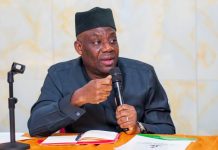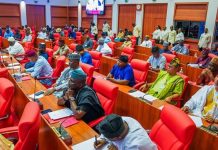Barely 16 months to the end of President Muhammadu Buhari’s second and final term in office, the window of opportunity to deliver the promised strong economy and secured nation is becoming narrow.
Indices such as dwindling earnings, mounting debts, unaffordable debt servicing, deepening macro instability, rising insecurity, and waning public goodwill appear to be working against the President’s desire to finish strong.
And as he inches closer to retirement from public life after about five decades of service, part of which he had spent as military head of state and minister of petroleum before being democratically-elected, Nigeria’s huge debt profile could be the most resounding talking point in the assessment of post-Buhari era.
To be sure, from May 2015, when the President inherited what his cabinet members have described as “a dying economy,” till date, Nigeria’s public debt stock has increased by over threefold. Precisely, the country has added N25.04 trillion to its initial debt in less than seven years.
As of the first quarter of 2015, the country’s public debt stood at N12.06 trillion, a figure that has ballooned to N38 trillion as of last September, recording a growth of 208 per cent.
Still, the official statistics under-reports the actual amount owed. Last year, the Fitch Ratings, a global research institution, raised the alarm that the government’s reliance on ways and means facility (WMF), facilities sourced from the Central Bank of Nigeria (CBN) to fund budget shortfalls, to finance its deficit was a major cause of the country’s rising inflation.
The Debt Management Office (DMO) did admit the existing WMF was a challenge and disclosed a plan to convert it to a 30-year debt instrument. As at early 2021, the amount, which is not captured by the national debt reporting, was estimated at N10 trillion. At a media function later last year, the DMD Director-General, Patience Oniha, could not give the updated figure but confirmed that, “it was estimated at N10 trillion earlier in the year.”
By Geoff Iyatse, Assistant Business Editor
Source: guardian.ng









